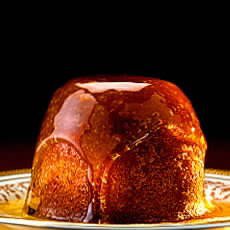


04/02/2016

Roy Noel Derbyshire, RIP. A sad month for the Derbyshires: my brother Noel died suddenly on March 8th from an aortic aneurysm, at his home in England. He was mentally and physically active to near the end — had been out shopping the day before he died.
Noel was fifteen years older than me. We saw too little of each other. After he joined the British army in 1947 we were never living in the same town, rarely even in the same country. We kept up with each other by mail, though, and relations were never anything but affectionate.
My brother was a hard worker, a good citizen, and a loving family man. He served his country in the armed forces for twenty-four years, and then his municipality for another twenty. He was married to Dorothy, who survives him, for over sixty-two years. The marriage was, so far as an outsider could tell, cloudless. They raised two fine sons.
Noel’s was a good life, usefully and honorably lived. I shall cherish my memories of him.
Them he cannot take. We forget now, in this age of texting and Skype, how many letters people used to write. My mother got regular letters from her numerous siblings, living fifty or sixty miles away.
Noel kept this up to the end. I got two or three letters a year from him, the last one in December 2015. Reading one of Noel’s letters was like having him in the room with you, talking.
I've met a lot of writers in my time, including a few famous ones. They fall into two broad groups. In Group One are those Dr Johnson and Arthur Koestler warned us about: those who, after you've been reading and admiring their stuff for years, are a sad disappointment in person.
Noel, though never a professional writer, was in Group Two: people with only one voice, who write just as they speak. That’s a blessing. I have a big file of Noel’s letters. To hear his voice, complete with soft Shropshire accent, I only have to dip into the file. William Johnson Cory’s lovely lines come to mind:
A Trump supporter passes. Like all Derbyshires, my brother was politically opinionated. He loved his country and hated what British politicians of the later twentieth century had done to it through mass immigration. I once heard him express the opinion that there ought to be a law permitting any honest citizen to shoot two politicians before breakfast every morning.Still are thy pleasant voices, thy nightingales, awake;
For Death, he taketh all away, but them he cannot take.
Naturally Noel was a Trump supporter. Almost the last words he wrote to me, in that December letter, were in praise of the Donald. Slightly bowdlerized:
Donald Trump put his foot in his mouth when he voiced his thinking — no more Muslims allowed in. Brave person, see if he gets away with it. He would not here [i.e. in England], too many soft idiots in power …Nature or nurture? Well, we had very little overlap on the nurture side …
The Old Country. Some random notes on Britain today.
Item. Question: What is the meaning of "Twingo"? Is it

Answer: None of the above. It’s the model of car they gave me at the Hertz counter in Heathrow Airport.
Twingo! Well, I guess so long as it doesn’t sound like some kind of insult in Serbo-Croat or Japanese, the Marketing Department is off the hook.
And … uh-oh, standard shift. The Brits just won’t let go of it.
Working the clutch comes back to me after a few white-knuckle minutes around the Hertz parking lot, but I can’t get the damn thing into reverse. I can see where reverse is, but the stick just doesn’t want to go there.
After ten minutes fruitless struggling, I set off and drive all the way across west and south London praying not to get stuck in some situation I need to reverse out of.

Item. Lead news story on the car radio is of the Brussels bombings, which happened shortly before my own plane took off from JFK. It’s dismal news, of course, but I can’t engage with it. Where Islamist terror is concerned, I’m in a state of total resignation.
At some point recently I've accepted the fact that the Western world is ruled by stupidity, in thrall to crackpot theories about human nature and human society. Who ever thought that mass immigration of people with utterly different values and histories would end well? I know I never did. Neither did my brother nor my father, nor any number of other Brits I know. Enoch Powell was sounding the alarm fifty years ago.
It happened anyway. The forces of collective stupidity were too mighty. Now here is the harvest.
I’m supposed to rein in my natural pessimism for VDARE.com, but really, are there any grounds for hope, when Stupidity bestrides the world like a Colossus? I’m glad I’m getting old and my son is trained to fight.
Item. Arriving at my niece’s house, her husband solves the reverse-gear problem for me. There’s a wee ring on the shift stick you have to pull up before it'll go into reverse.
For goodness' sake! A word in your ears, Brits: AUTOMATIC! It’s not just for girls any more. (Which was the common prejudice when I started driving, back in the Upper Paleolithic. Real men preferred standard shift.)

Item. My niece, in a conversation about foreign language learning:
Where I work [in Lewisham, south London] there’s a big West African settlement. They all speak English and French, and some West African language too. I feel embarrassed, only knowing English.Punch line: My niece is a professional midwife.
Item. Over to Swindon for the funeral. Heard on the car radio: "England has beaten Afghanistan!" Really? After fifteen years, is that whole futile war finally over?
Nah, it’s just a cricket result.
Item. Checked into a bed-and-breakfast place in Swindon, not wanting to impose on relatives. They do dinners, too, so I ordered one. The desserts are written up on a chalk board. There’s Spotted Dick, of course, and something called Golden Syrup Sponge.
Me, to waitress: "Your Golden Syrup Sponge: Is that what in my childhood we called treacle pudding?"

She laughed. "Yeah, same thing."
I ordered it. It was delicious. Treacle pudding was always my favorite. Proust had his cookie, I have my treacle pudding.
It’s heartening to know that fragments of English culture like this still survive, even if only under euphemized names.
Item. Good funeral: tasteful, well-attended, and brief.
In the annoying English tradition we sang one hymn, Crimond, that everyone knew — even, I was pleased to see, the youngsters among us — but then a second hymn that nobody knew at all, so that the first two verses went by in an embarrassed near-silence while we got the hang of the tune.
But then, what is more quintessentially English than embarrassment?

More British than the Brits. My brother was born in New Zealand. It was therefore a small but happy coincidence to read in the newspapers on the day of his funeral that the Kiwis have decided, in a referendum, to keep the Union Jack on their national flag.
It’s a good conservative result. New Zealanders are just as diversity-addled as the rest of the white First World; but their sheer remoteness from anywhere else, along with some comparatively sensible immigration policies, prevent the horrible demographic revolution that’s overtaken Britain, France, and Germany.
Hold the line down there, Kiwis. You may still be flying the Union Jack when Britain herself has switched to the Star and Crescent.

Ge' yw passpw ready. Now that I've finished listening to John McWhorter’s lectures on "The Story of Human Language," I know how futile it is to grumble about language change. Language changes; that’s what it does. In particular, when a lot of foreigners are learning your language, it changes mostly in the direction of greater simplicity.
Futile or not, though, I’m going to grumble. If change is what languages do, grumbling is what geezers do.
So here goes: I just don’t like the sound of early-21st-century British English. Phonetically, it’s changed in the direction of greater ugliness.
Why does every other sentence have to end with "yeah?" When did the pure [u:] vowel of "you" turn into a tortured triphthong: "yieuw"?
And what on earth has happened to the [ɔ:] vowel of "law" and "caught"? It’s been squished down into a semivowel, a mere [w], that is not only ugly in itself, but annihilates any consonants immediately following. "You must have yw passpw ready," said the Virgin Atlantic lady as we disembarked at Heathrow. "Give us a cw," people say when they want you to phone them.
The Brits themselves are grumbling about phonetic change. The "Letters" columns of the London Daily Telegraph ran this plea on March 21st:
Dropped ou'The villain here is the glottal stop, that micro-cough you make, twice, when you say "Uh-oh." It’s pretty much replaced "t" in medial positions. When combined with the collapsed [ɔ:] this gives you truly hideous locutions like "dw'uh" for "daughter." As the headline to that Telegraph letter suggests, the "t" sound has also been replaced by a glottal stop in final positions, when not wiped out altogether by a preceding collapsed-[ɔ:].SIR — The letter T seems to have disappeared from the English spoken language. If found, could it please be returned to use?
Marian Crossley
Walton on the Hill, Surrey
But yes, grumbling is futile. Or "fu'ile."
Who the bell tolls for. It tolls for thee, "whom."
Where "whom" is concerned, I've had enough — enough, I mean, of people emailing in to tell me I've used the word "whom" incorrectly. I’m just going to stop using the thing altogether, except in a few choice quotes — Lenin’s "Who? Whom?" for example. "Who? Who?" just doesn’t have the same pithy penetration.
I may, in fact, surrender even more territory to the language-simplifiers. Why, for example, should I continue to nag people about the difference between the verbs "to lie" and "to lay," when even Prof. McWhorter no longer cares? (At 2m38s into Lecture 36 he speaks clearly of someone "laying back on a couch.") If it no longer matters to a professor of linguistics, why should it matter to me?
For starters, though, I need to get one of those lapel buttons saying "I FAVOR WHOM’s DOOM."
Auntie shows her knickers. The Brits may be stripping down their phonetic repertoire, but they haven’t lost their love of word-play.
A key reference point here is the radio show "I’m Sorry, I Haven’t a Clue," now in its 45th year on the air. A spoof of the old-style radio and TV panel games, the show features a high level of verbal wit.
I especially like their silly word re-definitions. Some recent samples:
"à la carte" — an Islamic wheelbarrowThere are several more in the same regrettable vein here. But WARNING: The BBC, which used to be so prim we called it "Auntie," has loosened up considerably in recent years, and some of these are borderline smutty."bidet" — two days before D-Day
"crucifix" — a religious brand of glue
Too much politics? (cont.) Brits and Yanks have of course had mixed feelings about each other well-nigh for ever.

I've been reading Fanny Trollope’s book Domestic Manners of the Americans. Mrs Trollope, mother of the novelist Anthony Trollope, spent two and a half years in the young U.S.A., 1827-30.
She didn’t like us. To quote her precisely: "I do not like them. I do not like their principles, I do not like their manners, I do not like their opinions." She recorded these many dislikes in her book, which she wrote after returning to England. It was a best-seller.
Mrs Trollope’s sourness towards Americans is a bit odd. You have to remember that to Englishmen in the 1820s — and indeed well through into the 20th century — the U.S.A. was a radical place. We had overthrown the old system and set up a new one. Mrs Trollope was an intellectual, a bluestocking and abolitionist, and inclined to radicalism herself. In fact the reason she came here was to join a commune one of her friends had established for the education and general uplifting of freed blacks.
So her not liking Americans was, as I said, a bit odd. She herself says the following thing in her book:
Were I an English legislator, instead of sending sedition to the Tower [the Tower of London, she means], I would send her to make a tour of the United States. I had a little leaning towards sedition myself when I set out, but before I had half completed my tour I was quite cured.I happened to be reading Mrs Trollope’s book after writing last month’s diary, in which I voiced one of my periodic complaints about there being too much politics forcing itself on our attention.
The following passage seemed relevant to that. In it, the British disdain for politics comes up against the American passion for it. By my scorecard, America wins on points.
Mrs Trollope has settled in Cincinnati, where she’s having a conversation with the guy who delivers her milk. Here’s the exchange.
Fanny: You spend a good deal of time in reading the newspapers.Math Corner. I used to turn with relief to math as a haven of reason and sanity from all the multiculti craziness. Here at least, I used to believe, was a place insulated from all the screeching about "privilege" and "hate."Milkman: And I'd like you to tell me how we can spend it better. How should freemen spend their time, but looking after their government, and watching that them fellers as we gives offices to, doos their duty, and gives themselves no airs?
She: But I sometimes think, sir, that your fences might be in more thorough repair, and your roads in better order, if less time was spent in politics.
He: The Lord! to see how little you knows of a free country? Why, what’s the smoothness of a road, put against the freedom of a free-born American? And what does a broken zig-zag signify, comparable to knowing that the men what we have been pleased to send up to Congress, speaks handsome and straight, as we chooses they should?
She: It is from a sense of duty, then, that you all go to the liquor store to read the papers?
He: To be sure it is, and he'd be no true born American as didn’t. I don’t say that the father of a family should always be after liquor, but I do say that I'd rather have my son drunk three times in a week, than not look after the affairs of his country.
No longer. Institutional math is now just as heavily invested in the race grievance rackets as the rest of the academy.
Two cases in point.
Case 1. The March 2016 issue of American Mathematical Monthly leads off with an article titled "Mathematics and the Politics of Race: The Case of William Claytor (Ph.D., University of Pennsylvania, 1933)." Claytor (1908-1967) was a black research mathematician who did interesting work in the field of point-set topology.
It’s a long article — at 27 pages and 82 references, longer than the average for a leader in the Monthly. The corresponding leader in the February issue ("Optimally Topologically Transitive Orbits in Discrete Dynamical Systems" — a must-read!) is 21 pages with a mere 29 references.

So what does it tell us? Nothing much that I can see. Claytor seems to have been a good midlevel research mathematician. I’m in no position myself to judge the quality of his work, but the great Solomon Lefschetz, who surely was, described Claytor’s 1936 paper "On Peanian Continua Not Imbeddable in a Spherical Surface" as "the best of the session" when Claytor presented it at a conference that year. Praise from Lefschetz was praise indeed.
That conference was held in North Carolina, which had legal segregation by race. Claytor was not allowed a room at the conference hotel, so he stayed at a private home.
Humiliating, to be sure. To judge from the Monthly article, however, that was pretty much the worst thing that ever happened to him. Race snobbery may — it’s not clear from the article — have kept him from a Princeton appointment in 1935; but this was the trough of the Depression and funding for abstract research positions was tight.
Much more commonly, to quote the Monthly article:
Influential members within the American mathematical research community saw in him a gifted fellow traveler and did what they could to gain his entry into their rarefied academic world.Starting the article, I was expecting to read that Claytor had been hunted down and lynched by a howling mob of algebraic geometers. In fact he had a decent, humdrum, middle-class American life for a person of his background and abilities, studying and teaching. (And serving his country: He enlisted eight months before Pearl Harbor, at age 33, and served in stateside postings through the war.) Compared with what was happening elsewhere in Claytor’s prime years — to farmers in the dustbowl or mathematicians in the U.S.S.R. — his life was an idyll.
You don’t have to be a fan of Jim Crow — I’m not — to think that much has been made of very little here, and that this endless picking at historical scabs does nothing for our country but foster grievance and discord.
Case 2. The Spring 2016 issue of Mathematical Intelligencer has an article titled: "'Mathematics Knows No Races': A Political Speech that David Hilbert Planned for the ICM [i.e. International Congress of Mathematicians] in Bologna in 1928."
The main takeaway here is how much the usage of the word "race" has changed in 88 years. Here is the sentence of Hilbert’s quoted in the title — in German: Die Mathematik kennt keine Rassen — and the two sentences immediately following it.
Mathematics Knows No Races. If we look — even superficially — at the history of our science, we see all nations and peoples, the big as well as the small, taking successful and equal part in it. Let us think of Descartes, Fermat, Pascal,Huygens, Newton, Leibniz, Bernoulli, Euler, d'Alembert, Lagrange, Monge, Laplace, Legendre, Fourier, Gauss, Poisson,Möbius, Chasles, Lamé, Steiner, Abel, Jacobi, Dirichlet, Hamilton, Riemann, Clebsch, Cantor, Poincaré, Darboux,Klein — these names are thrown wildly among the nations, as a dice-cup couldn’t do more thoroughly and less biased [gründlicher und unparteiischer].Taste the diversity!
John Derbyshire writes an incredible amount on all sorts of subjects for all kinds of outlets. (This no longer includes National Review, whose editors had some kind of tantrum and fired him. ) He is the author of We Are Doomed: Reclaiming Conservative Pessimism and several other books. He’s had two books published by VDARE.com: FROM THE DISSIDENT RIGHT (also available in Kindle) and From the Dissident Right II: Essays 2013. His writings are archived at JohnDerbyshire.com.
Readers who wish to donate (tax deductible) funds specifically earmarked for John Derbyshire’s writings at VDARE.com can do so here.